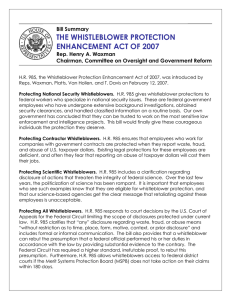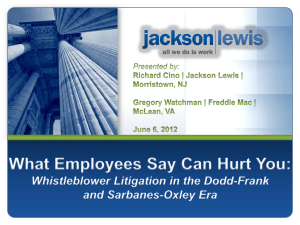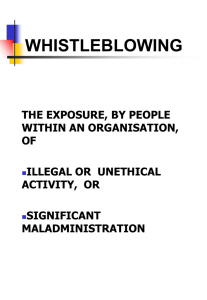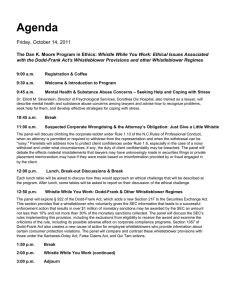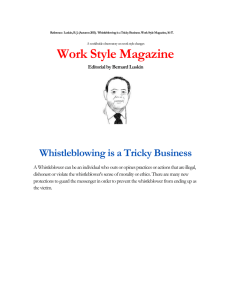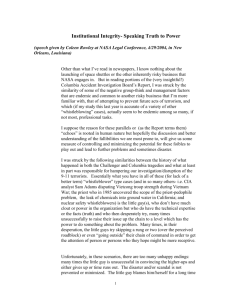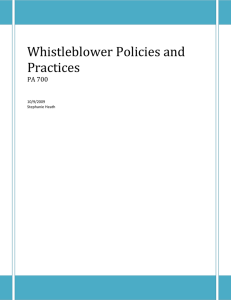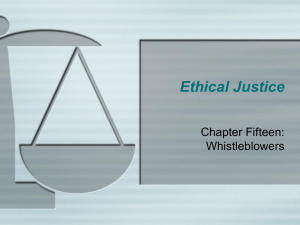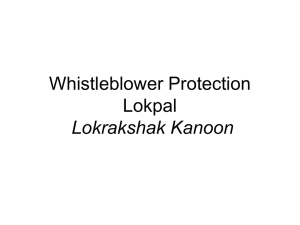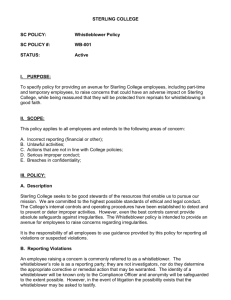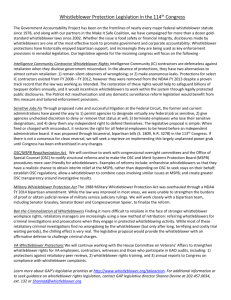Whistleblowing
advertisement
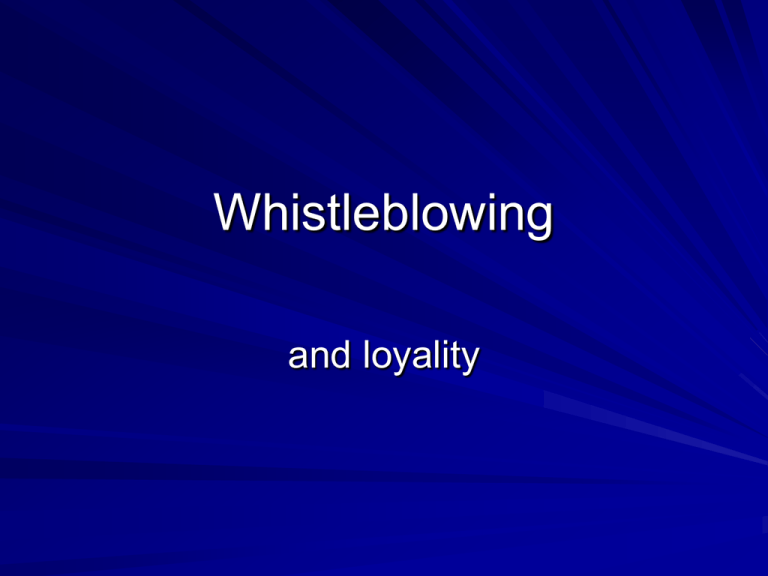
Whistleblowing and loyality Definition A voluntary attempt by an employee to bring a wrongful practice to the attention of those who can remedy the situation. Whistleblowers claim to act out of concern for the company, for society or for both. Whistleblowers are usually not admired by their fellow workers. Many are forced to quit their work. Who is not an whistleblower? Only an employee (or an ex-employee) can blow the whistle. An investigating journalist is not a whistleblower, she is just doing her job. A witness in a criminal case is not a whistleblower, if she answers questions truthfully. The employee is hired to do as she is told by her superiors, and not to divulge confidential information to outsiders is part of the job. Whistleblowers must have information (of significant misconduct by the company) that is not known outside of the company. Pure Motives A whistleblower’s motives must not be personal gain or revenge. A whistleblower’s motive must be concern to correct some wrong or to put an end to some illegal or immoral conduct. Outside normal reporting channels Employees are expected to report anything illegal or irregular to their immediate superior. If you go over her head and report to her superior or the board of directors, you are an ’internal’ whistleblower. If you take your concerns to a newspaper or the police, you are an ’extertnal’ whistleblower. To whom? The information must be revealed in ways that can reasonably be expected to bring about desired change. You must bring the matter to the attention of someone who can make it public or do something about it. Simply telling someone else is not whistleblowing, if that someone cannot do anything about it or at least make it public. Avoiding the tragedy of whistleblowing In an article by that name, Michael Davis argues that everyone involved suffers as a result of whistleblowing.The whistleblower as well as other employees and the employer. Whistleblowing may sometimes be necessary, but all other alternatives should be pursued before it happens. It can only be the last resort, Davis argues. Blame the messenger The whistleblower suffer because there is a tendency to blame the messenger for bad news. Is blowing the whistle a sign of insufficient loyality to the company? Is the whistleblower betraying trust? Is he or she a traitor to the company? Can the whistleblower blow the whistle without breaking trust? What behaviour is loyal? Is it loyal to act only in the way that the company management considers to be in the company´s best interest? Who defines loyal behaviour here? Is not acting loyally to act in a maner which the employee genuinely believes to be in the best interest of the company? Can it ever be in the best interest of the company to act immorally? If an action is justified (in the circumstances) is it ever genuinely immoral? If an action is not justified is it not immoral? If it is immoral, is it in the best interest of the company? If it is not in the best interest of the company how can it be disloyal of an employee to ’blow the whistle’? Moral insight Is it correct of an employee to question the moral integrity and the moral insight of his superiors? If he does, why is he working there? If he does, he is expected to do as they tell him, and that may involve immoral acts. Can the employee insist that his moral (’higher’) integrity is the companies norm,rather than the integrity and moral insight of his superiors? Mistakes? Is the whistleblower always right? May he not mistake his superior’s unwillingness to change some practice or procedure for immorality? May they not be right and he wrong? How should the company deal with real or potential whistleblower’s? All genuine concerns by employees should be taken seriously. Employees should be able to voice these concern in confidence and without fear. Concerns should be dealt with or laid to rest with credible explanations.
